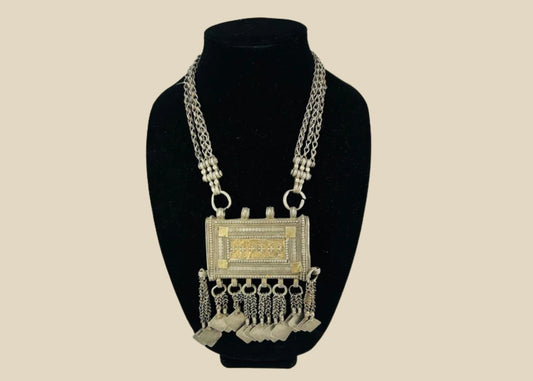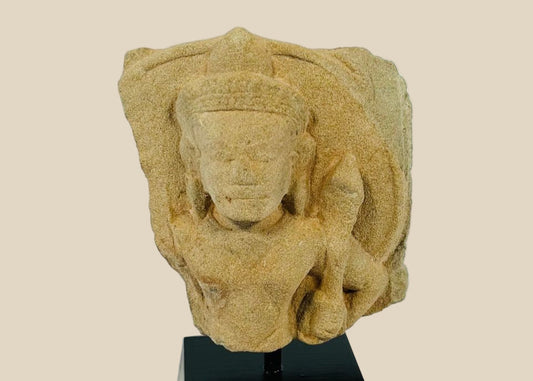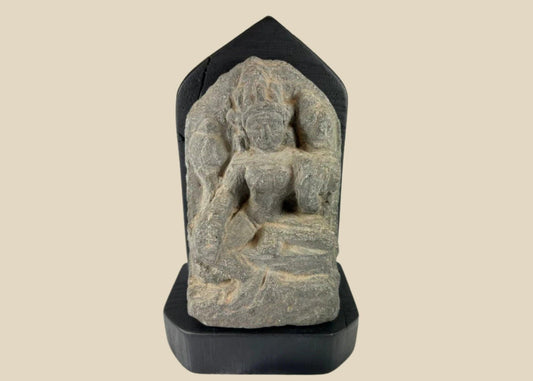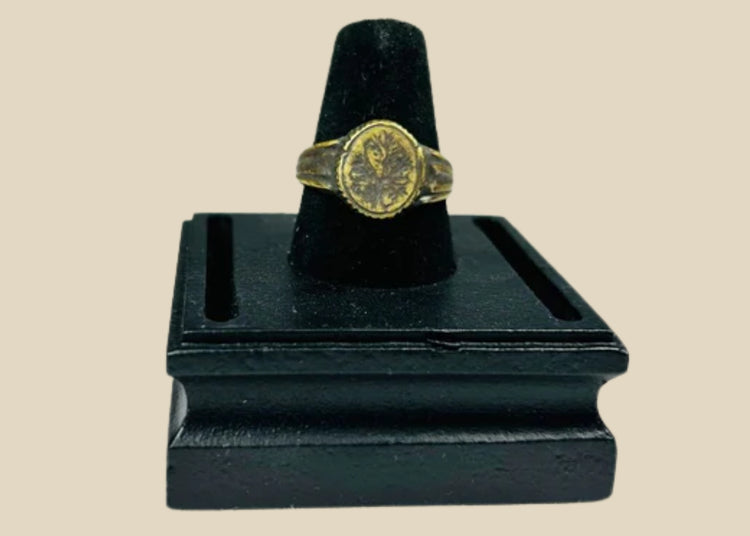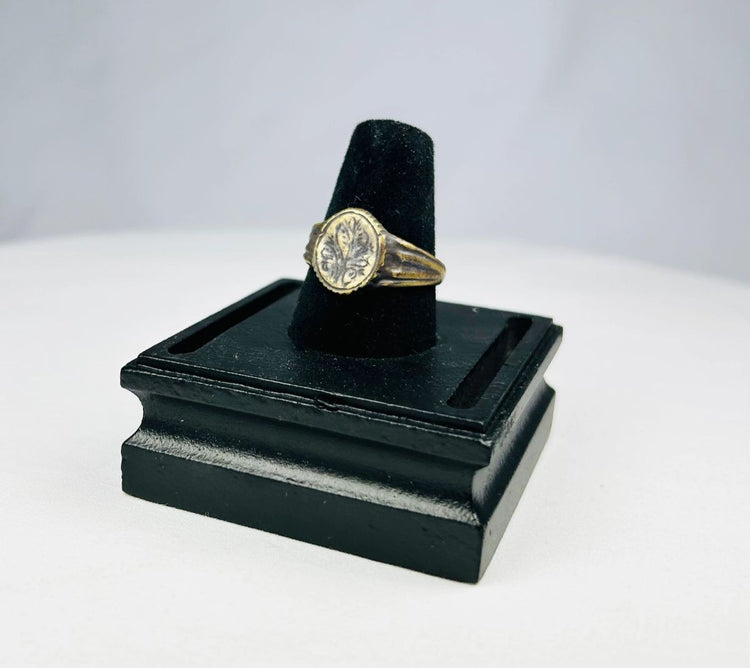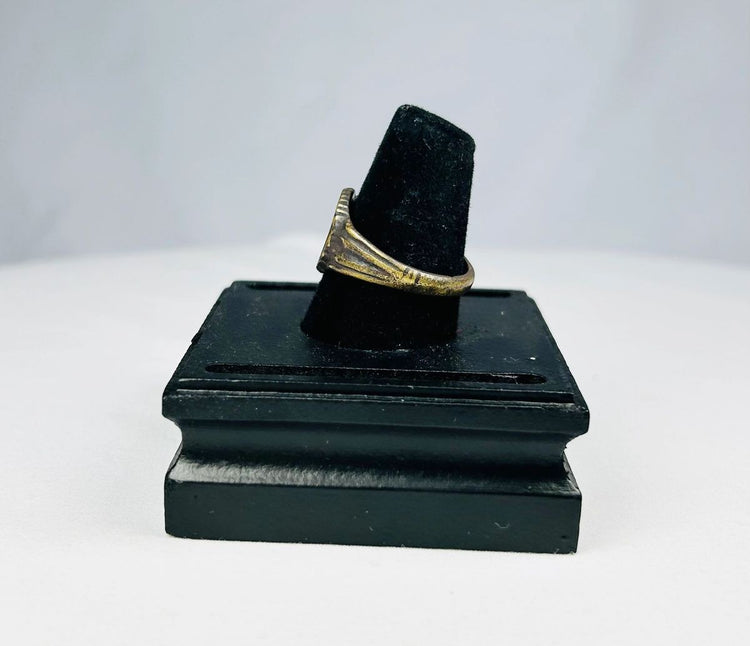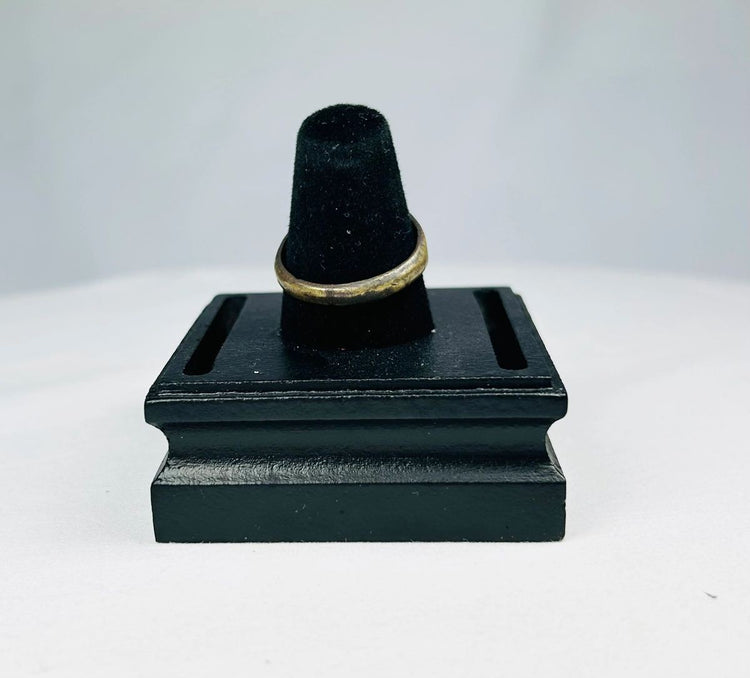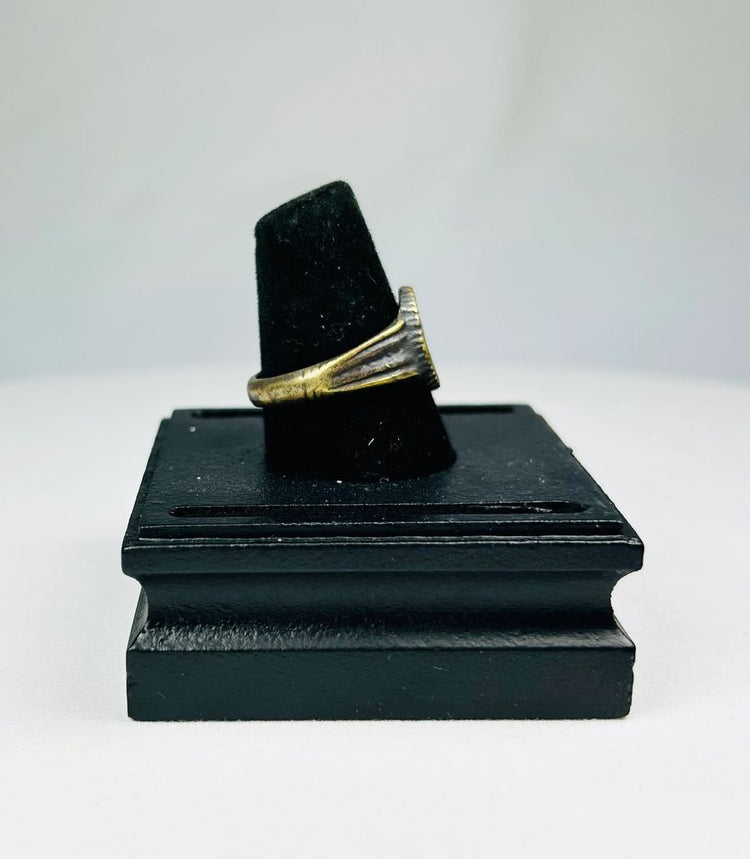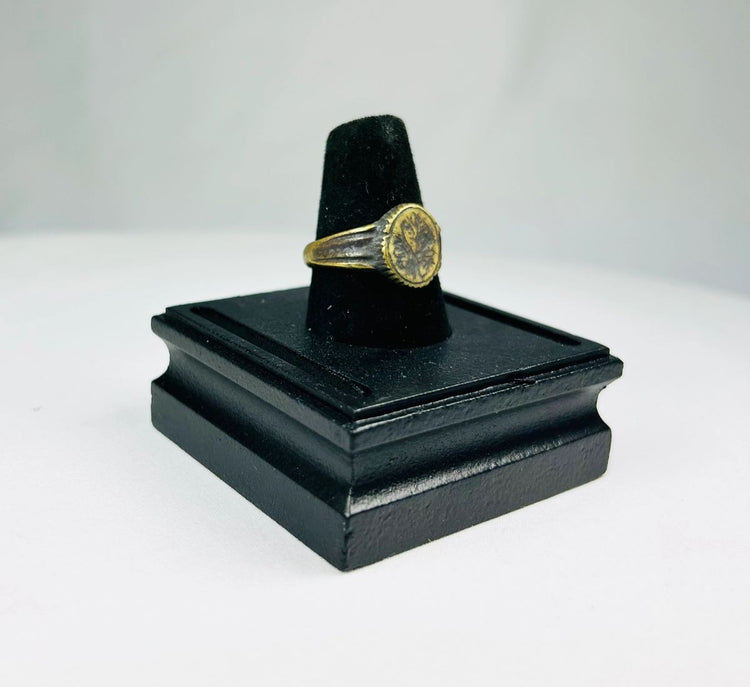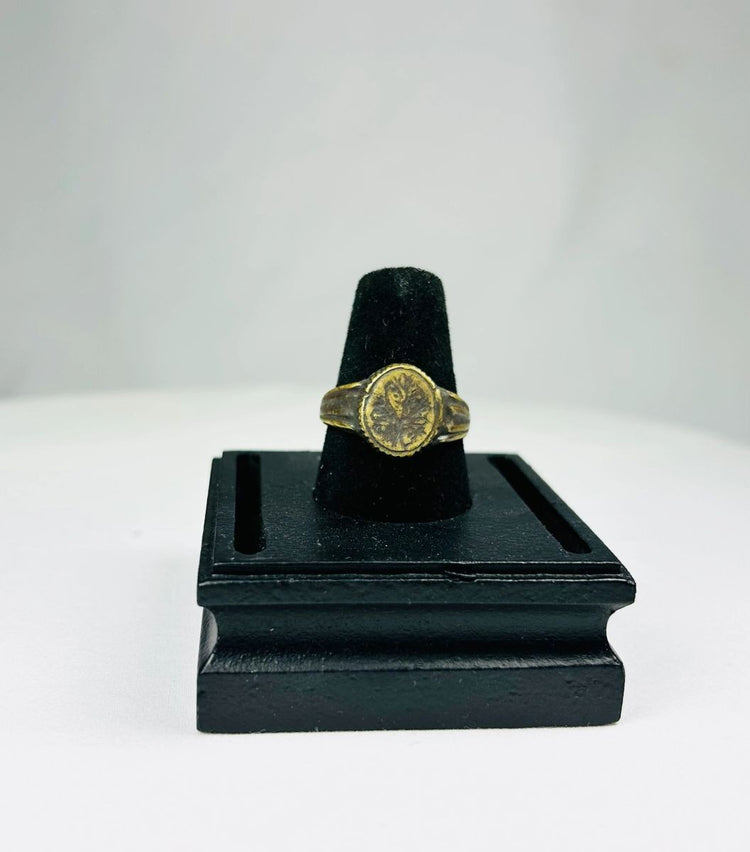Ancient Gold-Gilded | Bronze Signet Ring with Floral Motif | Circa 300–600 CE
Description
More
Less
Historical Context & Origin
Region: Eastern Mediterranean / Near East
Material: Gold-gilded bronze
Period: Late Roman to Early Byzantine, circa 300–600 CE
Description
This exquisite ancient ring exemplifies the elegance and symbolism of late Roman and early Byzantine jewelry. Crafted from bronze with remnants of gold gilding, it features an intricately engraved floral motif on its bezel—an enduring symbol of life, prosperity, and divine beauty. Rings such as this were not only personal adornments but also spiritual expressions and markers of social status during a period of profound cultural and artistic achievement.
Features
- Finely engraved floral motif on the bezel, symbolizing life, fertility, and divine beauty
- Decorative border framing the motif, enhancing its elegance
- Gold gilding on the bezel with visible areas of wear, revealing the bronze beneath and producing a rich, authentic patina
- Slender, well-preserved band that draws focus to the ornate bezel
- Approximate ring size: 12.5 US
Cultural Significance
In late Roman and early Byzantine societies, floral motifs were highly symbolic, often associated with renewal, prosperity, and divine blessing. Rings were used as personal seals, status symbols, and spiritual emblems, allowing the wearer to project both prestige and piety. This piece reflects the deep cultural connection between nature, faith, and identity in the ancient Mediterranean world.
Condition
The ring is in very good condition for its age, with minor wear and natural patina consistent with 1,400–1,700 years of history. The gilding, though partially worn, retains visual impact and enhances its authenticity.
Dimensions (approximate)
Ring Size: 12.5 US
Age
Circa 300–600 CE
Learn More
Explore the symbolism, materials, and cultural meaning of rings in the ancient and medieval world: Learn About the History of Rings
Discover other historic rings and related artifacts from our collection: View Rings at Relic & Rarity
Description
Historical Context & Origin
Region: Eastern Mediterranean / Near East
Material: Gold-gilded bronze
Period: Late Roman to Early Byzantine, circa 300–600 CE
Description
This exquisite ancient ring exemplifies the elegance and symbolism of late Roman and early Byzantine jewelry. Crafted from bronze with remnants of gold gilding, it features an intricately engraved floral motif on its bezel—an enduring symbol of life, prosperity, and divine beauty. Rings such as this were not only personal adornments but also spiritual expressions and markers of social status during a period of profound cultural and artistic achievement.
Features
- Finely engraved floral motif on the bezel, symbolizing life, fertility, and divine beauty
- Decorative border framing the motif, enhancing its elegance
- Gold gilding on the bezel with visible areas of wear, revealing the bronze beneath and producing a rich, authentic patina
- Slender, well-preserved band that draws focus to the ornate bezel
- Approximate ring size: 12.5 US
Cultural Significance
In late Roman and early Byzantine societies, floral motifs were highly symbolic, often associated with renewal, prosperity, and divine blessing. Rings were used as personal seals, status symbols, and spiritual emblems, allowing the wearer to project both prestige and piety. This piece reflects the deep cultural connection between nature, faith, and identity in the ancient Mediterranean world.
Condition
The ring is in very good condition for its age, with minor wear and natural patina consistent with 1,400–1,700 years of history. The gilding, though partially worn, retains visual impact and enhances its authenticity.
Dimensions (approximate)
Ring Size: 12.5 US
Age
Circa 300–600 CE
Learn More
Explore the symbolism, materials, and cultural meaning of rings in the ancient and medieval world: Learn About the History of Rings
Discover other historic rings and related artifacts from our collection: View Rings at Relic & Rarity
You May Also Like

